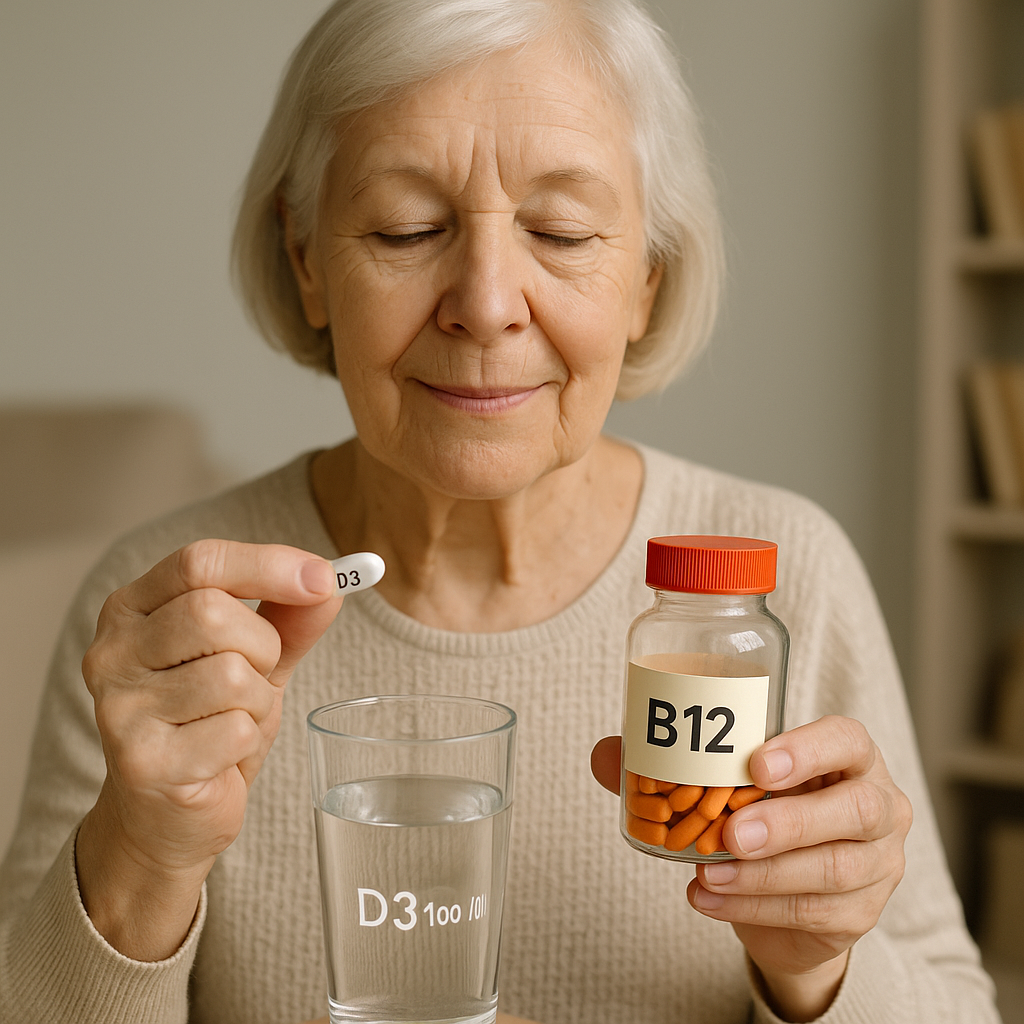
Essential Supplements for Adults Over 80: What Science Recommends
Share
Introduction
As we age, our bodies face unique physiological challenges — from bone density loss and cognitive decline to weakened immunity and nutrient malabsorption. For individuals over 80, maintaining optimal health becomes increasingly dependent on the right supplementation. Two nutrients consistently supported by research for this age group are Vitamin D3 and Vitamin B12.
Let’s explore why these two supplements are considered foundational for adults over 80, backed by clinical evidence.
1. Vitamin D3: Supporting Bones, Immunity, and Mood
Vitamin D3 (cholecalciferol) is critical for calcium absorption and bone maintenance, yet its production declines sharply with age. Older adults also tend to get less sun exposure — which further reduces their ability to synthesize vitamin D naturally.
A 2020 review published in Nutrients found that low vitamin D levels are prevalent among elderly populations and are strongly associated with frailty, osteoporosis, and falls (Pilz et al., 2020). Supplementing with 800–2,000 IU daily is recommended to maintain serum levels above 30 ng/mL.
Additional benefits:
-
Boosts immune response (especially important post-viral recovery)
-
Reduces risk of depression and seasonal mood disorders
-
May lower mortality rates in older adults (Keum et al., 2019)
2. Vitamin B12: Essential for Energy and Cognition
Vitamin B12 plays a vital role in nerve function, red blood cell formation, and DNA synthesis. Unfortunately, age-related gastric atrophy in older adults reduces the stomach acid required to absorb B12 from food.
According to a study in the American Journal of Clinical Nutrition, nearly 20% of adults over 60 are deficient in B12 — and this percentage increases further past 80 (Allen, 2009). Deficiency may cause symptoms that mimic dementia, including memory loss, confusion, and fatigue.
Supplementation is often required in cyanocobalamin or methylcobalamin form — and is available as oral tablets or sublingual drops.
Why These Two?
While many nutrients are beneficial for older adults, D3 and B12 consistently rank among the most under-consumed yet most essential in the 80+ population. They support the body in its most vulnerable areas: mobility, cognition, and immune strength — ultimately helping seniors stay independent and vibrant.
Tips for Safe Supplementation
-
Blood Work First: Always check serum 25(OH)D and B12 levels through routine labs.
-
Consistency: These nutrients work best when taken daily.
-
Combine Smart: Consider D3 with K2 for better calcium regulation; B12 often pairs well with folate and B6.
Conclusion
For adults over 80, staying active and engaged starts with staying well-nourished. Vitamin D3 and B12 offer scientifically backed support to strengthen bones, sharpen memory, and enhance vitality. These aren't just supplements — they’re daily tools for living life more fully in your 80s and beyond.
📚 References
-
Pilz, S., et al. (2020). Vitamin D and Frailty in Older Adults. Nutrients, 12(4), 1194.
-
Allen, L. H. (2009). Causes of vitamin B12 and folate deficiency. Food and Nutrition Bulletin, 30(2_suppl1), S20–S34.
-
Keum, N., et al. (2019). Vitamin D supplementation and total cancer incidence and mortality. JAMA, 321(6), 598–601.
